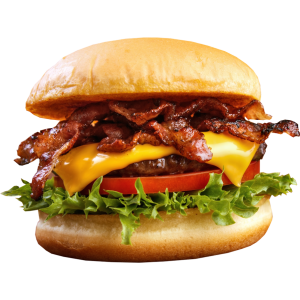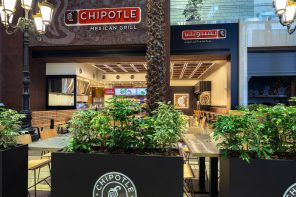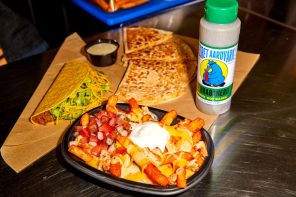There is no doubt that James Cameron would be first in line at a ‘free-from’ quick-service restaurant (QSR), but is this what the future looks like for such a large part of the foodservice industry?

In Australia, research from the NPD Group estimates the free-from category to be worth $7.7 billion. To add to this, the drivers in the industry aren’t necessarily people who are restricted due to allergies or diet—it’s people who are looking to make healthier lifestyle choices. But straight away we see a problem, are people that visit QSRs looking to make healthy choices? Or are they after the convenience and taste we’ve all become accustomed to over the years of dining out?
Undoubtedly, QSRs have started trialling free-from products, notably Hell Pizza’s ‘Burger Pizza’, which featured crumbled bits of a Beyond Meat Patty—a plant-based meat alternative, as well as Burger King’s Impossible Burger, also a plant-based meat alternative. In terms of other free-from options, like gluten-free, sugar-free, and dairy-free, the possibilities are growing, but do remain limited.

Hell Pizza recently launched a pizza that had Beyond Meat instead of traditional meat. However, Hell Pizza did not freely advertise the fact that it wasn’t actually meat. According to a statement on the Hell Pizza website, 80 percent of people that had consumed the pizza weren’t phased to have eaten the meat alternative, and 70 percent of them would order it again. They did, however, acknowledge the dangers that were involved with the inadvertent hoodwink. “We acknowledge there were concerns around the contents of the Beyond Meat Patty, particular in relation to allergens, and for customers being able to make an informed decision when ordering their pizza.”
“Here at Hell, we take allergens very seriously. We are known for our commitment to catering for customers with dietary requirements—whether that’s gluten-free, vegan, dairy-free or vegetarian.” Despite the backlash from this stunt, the fact remains that the meat alternative was a popular product. Whether its popularity was tied to the publicity it received, or whether it was a genuinely enjoyable product, the Hell Pizza Burger Pizza sold out, sending a strong message to other QSRs not offering free-from options.
Looking through the McDonald’s nutritional information, it becomes very clear that it is not easy for someone looking to get a free-from meal unless they are willing to make major menu changes. This sentiment is something that is mirrored throughout the QSR industry, a sector that is often saturated with at least minor cross-contamination. For example, if one was looking for a gluten-free option from the McDonald’s menu, without removing or changing the original burger/salad, one’s options would be limited to an apple bag, a chicken salad, a garden salad, some balsamic dressing, strawberry jam, hotcake syrup, yoghurt, sundaes, black tea and coffee, fizzy drinks, and of course, water. One looking for an egg-free option has the option of similar eclectic menu items, with the addition of the fries, fish fingers, and hashbrowns; Milk- and soy-free diets are equally challenging to cater to via the standard McDonald’s menu.

So where does the solution lie? Are people with dietary restrictions supposed to refrain from QSRs for fear of cross-contamination forever? Or is the modern QSR pushing away a large base of clientele through lack of catering options?
Global trends indicate that free-from diets are going to become more and more common, making it seem natural that QSRs will head in that direction, too. For instance, Burger King has been widely trialling the Impossible Burger in the States, with plans to have it available in all of their restaurants in the country by the end of the year. Should all of Burger King’s 7,200 United States locations stock the Impossible Burger, it would be the largest chain to stock a plant-based meat alternative. The widely popular Impossible Burger is made up of plant-based matter and contains 30 percent less sodium, 40 percent less fat, and around 80 percent of the protein found within a regular patty. But where does it leave us in terms of egg-, soy-, and dairy-free options? The plain and simple answer is that there are not a lot of options in the realm of QSR for guaranteed safe free-from consumption. While there may not be many options available at the moment, there is undoubtedly research going into product development for free-from alternatives, much like the Burger King Impossible Burger trial, or the Hell Pizza Burger Pizza trial. It isn’t that there is a shortage of appropriate free-from products, it is more a case of making sure that the product caters to the other demands of the QSR industry, like cooking convenience, for instance, something that isn’t easy to do when many things are prepared using the same oil or fryer. Until there is enough demand for regular free-from options, it is unlikely that the QSR market will change dramatically.






